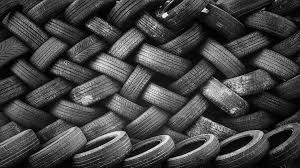Rubber has now become a foundation in all of our activities. Rubber is so important that it has its own industry. The odd thing is that rubber is used in a variety of applications. Rubber manufacture can now be natural or synthetic. The natural process increases the amount of latex found in particular plants. As a result, rubber recycling has grown increasingly popular.
Furthermore, it prevents approximately a million cut tyres from ending up in landfills. But, on the other hand, there is less awareness of rubber recycling. As a result, in this article, you will look at some basics of rubber recycling. After that, you'll go over the advantages you'll get from it.
Let's start!!
What is Rubber Recycling?
Rubber recycling has a long history dating back to when rubber was first used in industry. This is because, in the early 1900s, the price of rubber was comparable to the price of silver. In fact, it was quite valuable, making its reuse both cost-effective and business-savvy. However, rubber's cost was dramatically decreased in the middle of the twentieth century, thanks to lower-cost oil imports, synthetic rubber, and steel-belted tires.
Regrettably, this resulted in a decrease in the requirement to recycle tires. This remained the case until tire disposal became a concern for the environment. Furthermore, different laws required the safe disposal of worn tires through recycling. As a result, rubber recycling has resurfaced as a topic of discussion in this context.
So, what exactly is this rubber recycling business?
This is a term used to describe the process of re-purposing used tires. Rather than dumping them in landfills, several companies process them. Then use them on a range of other things. Like, they are sometimes utilized in construction applications and civil engineering. Rubber recycling can benefit both you and the environment in different ways.
Here Are A Few Of the Advantages Of Rubber Recycling
Less Energy Consumption
A substantial amount of energy is used to produce rubber regularly. As a result, there's a higher chance of greenhouse gas emissions wreaking havoc on the ecosystem. The continued generation of greenhouse gases will, without a doubt, continue to harm our ecosystem. Fortunately, this is something that may be avoided through recycling. This is because creating new items from recycled materials is significantly more straightforward.
As a result, you can use less energy during the manufacturing process, resulting in lower greenhouse gas emissions. For example, recycling 4-5 tires results in a 323-pound reduction in carbon dioxide emissions. Recycling also has a lower carbon footprint, up to 20 times lower. Without question, recycling is beneficial to our environment.
It helps to reduce pollution in the environment
Rubber recycling contributes to pollution reduction and produces extra room in landfills. However, many things that wind up in landfills pollute the environment. On occasions when rubber items degrade and begin to produce dangerous poisons due to exposure to sunshine. They can also catch fire at any time. In addition, when it rains, these tire materials collect water, promoting infections.
They can also contaminate aquatic bodies if they migrate into them. As a result, they degrade aquatic life and water quality. These are just a few of the consequences of continuing to dump rubber waste in landfills. However, this can be avoided by recycling which can be very useful.
Develops novel products
Another reason to be glad for rubber recycling is that it contributes to creating useful items. Recycled rubber materials are being used in a variety of applications. Recycled tires, for example, can be used to make fuel. In reality, this fuel is significantly more efficient than conventional coal-based fuel. This is because it produces fewer hazardous emissions.
In the same line, recycled rubber can be used to make railroad ties, playground turf, flooring, and rubberized asphalt. The good thing is that it's no longer only about getting stuff. It's more about getting better and more advantageous items. For example, most of the recycled rubber outputs are superior to their conventional counterparts. When you consider that rubberized features give more skid resistance and durability than standard paving materials, this becomes even clearer.
Conclusion!
Rubber recycling isn't particularly special. However, you must claim that it is unique when it comes to its advantages. This is due to the numerous economic and environmental benefits that it provides. So, now that you know more, make rubber recycling a priority to protect the environment. It's the very minimum you owe the world.
0


